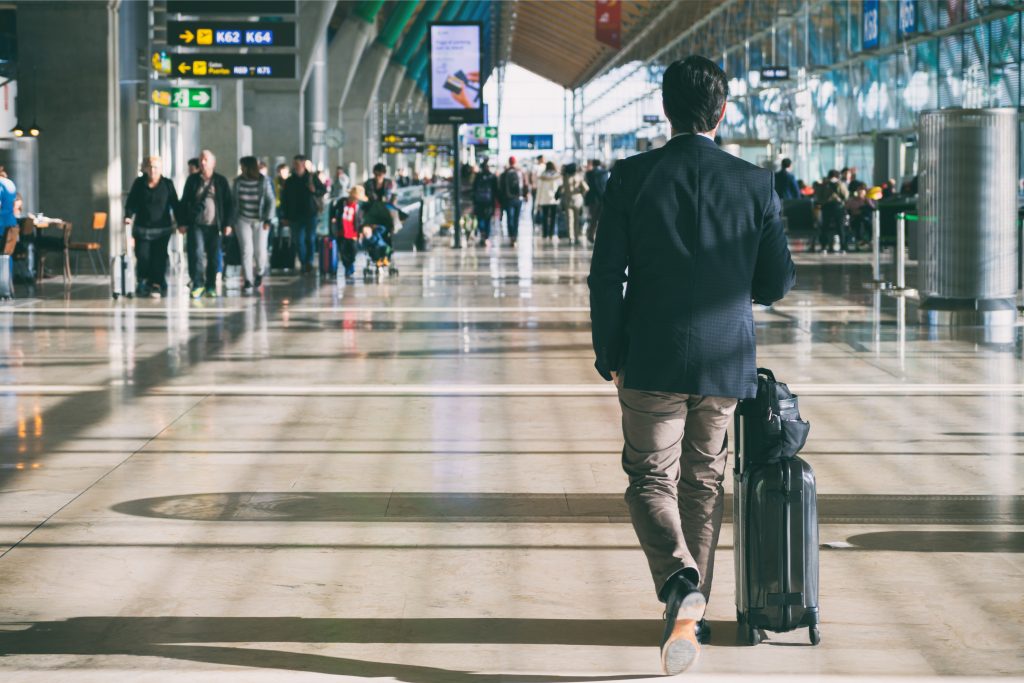As the aviation industry continues to recover from the challenges of the COVID-19 pandemic, airport security has taken on a more critical role than ever before. With the safety of passengers and staff at the forefront, airports are rethinking and upgrading their security protocols to address both traditional and emerging threats in a rapidly evolving landscape. In addition to preventing physical security breaches, today’s airport security must also consider health safety, operational efficiency, and the integration of advanced technology.
From a security company’s perspective, here’s how airports are enhancing security measures in this post-pandemic era, and why integrating cutting-edge technology is essential to ensuring safe, seamless operations.
The Rise of Contactless Technology
Contactless security technology is one of the most important innovations in airport security post-pandemic. By minimising physical contact between passengers and security personnel, these systems reduce the risk of transmitting diseases while maintaining high levels of security. For security companies, incorporating these technologies is essential to ensuring both safety and efficiency.
Key contactless technologies include:
- Biometric Scanning: Airports are increasingly adopting biometric systems, such as facial recognition, iris scans, and fingerprint readers, to verify identities without the need for physical documents. These systems not only enhance security by preventing identity fraud but also speed up the security screening process.
- Touchless Access Control: Security personnel are now utilising touchless access control systems to monitor restricted areas. These systems allow employees and passengers to enter secure zones without handling cards or keypads, further reducing health risks while maintaining tight control over sensitive areas.
- Automated Bag Screening: Advanced baggage screening systems now feature automated technology, such as X-rays and AI-driven scanning, which allows for faster and more accurate inspections without manual handling.
Security companies are playing a vital role in ensuring that these systems are properly implemented and maintained, ensuring smooth, secure operations at every touchpoint.
Integrated Threat Detection and Prevention Systems
While the pandemic shifted focus toward health and hygiene, traditional security threats, such as terrorism, smuggling, and unauthorised access, remain very real. To address these concerns, airports are adopting integrated threat detection and prevention systems that combine human expertise with advanced technology.
These include:
- AI-Powered Surveillance: Airports are now deploying AI-enhanced surveillance systems that can detect suspicious behaviour, monitor large crowds, and flag potential security threats in real-time. These systems work alongside trained security personnel to ensure that any unusual activity is identified and addressed immediately.
- Drone Detection: The increased use of drones has created new challenges for airport security. Unauthorised drones can pose significant risks to aircraft and passengers, prompting airports to adopt drone detection systems. These systems allow security teams to quickly locate and neutralise drone threats, preventing disruption or harm.
- Real-Time Data Sharing: Modern security systems allow for real-time data sharing between security teams, airport management, and law enforcement. By integrating security cameras, access control, and incident reporting systems, security companies can provide a more coordinated response to potential threats.
These integrated systems ensure that airports are able to prevent security breaches efficiently, while security personnel are equipped with the tools they need to respond quickly to any incidents.
Training and Adaptation for Security Personnel
Even with the most advanced technology in place, security teams remain the backbone of airport safety. In a post-pandemic world, security personnel need to adapt to new protocols, such as health screenings and enforcing COVID-related restrictions, while remaining vigilant against traditional threats.
Security companies are focused on enhancing the training of their personnel to meet these evolving challenges. Some areas of focus include:
- Health and Safety Training: Security personnel are trained to manage crowd control while maintaining health safety measures.
- Crisis Management: In addition to managing threats such as terrorism, security teams are trained to handle health-related emergencies, such as managing passengers who may present symptoms of illness.
- Technology Integration: Security officers are being trained to use advanced technologies, including biometrics and AI systems, to complement their role in maintaining secure operations.
By equipping security teams with the right tools and training, airports can maintain a high level of security while adapting to the new health and safety standards brought on by the pandemic.
Enhancing Passenger Experience Through Seamless Security
In addition to physical security, airports must also ensure that passengers have a smooth, hassle-free experience. Long lines and cumbersome security checks can lead to frustration, while seamless, well-coordinated operations can boost confidence in air travel.
Security companies are working with airports to streamline security processes by:
- Automating Routine Checks: With the help of automation, passengers can move through security checks more quickly, reducing wait times and minimising stress.
- Pre-Screening Solutions: Security companies are introducing pre-screening options, which allow low-risk travellers to bypass standard security lines, speeding up the process for everyone.
- Enhanced Communication: Clear, timely communication between security personnel and passengers helps reduce confusion and ensures that passengers know what to expect during the security process.
By focusing on efficiency, security companies can help airports provide a positive experience for passengers, encouraging more people to travel in a post-pandemic world.
The Future of Airport Security in a Post-Pandemic World
As the aviation industry continues to evolve in response to the pandemic, airport security is no longer just about preventing threats—it’s about ensuring health safety, optimising operations, and delivering a positive passenger experience. Security companies play a vital role in this transformation, helping airports integrate advanced technology and new protocols while maintaining the highest standards of safety.
In a post-pandemic world, airports that invest in enhanced security measures and seamless, technology-driven solutions will be better positioned to protect passengers, safeguard staff, and ensure the smooth functioning of daily operations. By staying ahead of emerging threats and continuously improving security practices, airports can continue to build trust and confidence in air travel.


